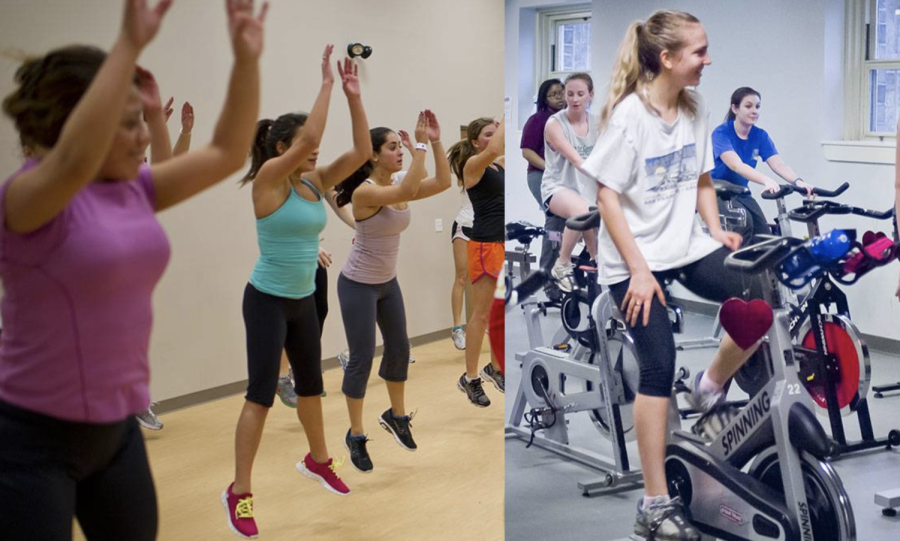If Colgate Wants to Promote Wellness, Stop Requiring Formal Physical Education
On the Colgate website, the physical education (PE) curriculum page states that Colgate’s PE programs are aimed at improving students’ physical, social, mental and environmental well-being. All students are encouraged to fulfill two PE credits (ten hours per credit) before the end of their sophomore year. Colgate offers a variety of courses that students can take to fulfill their PE requirements, such as self-defense, pickleball, barre, nutrition, climate conversations and more. Students can also elect to complete 10 hours of a variety of weekly fitness classes, like yoga, zumba or boxing, which is what I chose to do last semester to attain my first credit.
Although I enjoyed myself during each fitness class, in analyzing my well-being as a whole throughout the course of the Fall semester, I am confident in saying that completing my 10 hours of classes added stress to my everyday life. I was constantly thinking about when I would have free time to go to a class, which class I could go to that would not interfere with my Swinging ’Gates schedule and whether or not my GetInvolved event pass would work when I tried to check in at each class. As a generally anxious person, any addition to my schedule overwhelms me, and therefore, Colgate’s attempts to improve my well-being merely led to an increase in my stress levels.
While I appreciate Colgate’s efforts to mitigate students’ anxieties, I believe that stress-management practices should be unique from person to person and should be done on one’s own terms. As I’ve matured, I have become more self-aware and better at recognizing when I need to step back from my responsibilities and take time for my mental health. For example, I enjoy going on long runs, reading, doing yoga and talking to my mom on the phone. When trying to complete my PE requirement last semester, I had less time to partake in my own de-stressing activities. While I only attended about one class a week, as a member of the Swinging ’Gates, a political science major with 150 plus pages of reading per week and a student at an academically rigorous school in general, every hour counts. An hour at a Colgate boxing class was one less hour per week that I could use to go for a run or chat with my mom.
Since starting college, I have become a big advocate for exercise. Throughout the difficult and strange transition into college life, allotting time every day for movement has made me a happier person. My exercise routine differs week by week, but typically I will weight lift three to four times a week, run approximately twice a week, and occasionally do yoga. Not only do I love the physical act of exercise, but I also enjoy putting together my workout schedule and exploring new exercises and practices. Although I love working out today, this was not always the case. When I was younger, my mom would constantly encourage me to go for walks with her. I dreaded them. They felt like a chore that I was being coerced into doing. But as I got older and started to exercise on my own terms, I slowly started to love it. Ultimately, in my opinion, Colgate’s attempt to promote wellness will not be effective if students are required to complete their PE credits, as these courses will be seen as a chore.
I will not deny that Colgate’s PE classes are great. From my experience, the professors and instructors are knowledgeable and many of the classes do teach very valuable skills. However, as adults, Colgate students should not be required to take wellness classes unless they wish to do so.

Amy Grunther is a senior from North Caldwell, NJ concentrating in political science and minoring in English. She has previously served as a staff writer...










Laurie Garfinkel • Feb 4, 2022 at 2:12 pm
Amazing article!